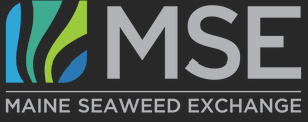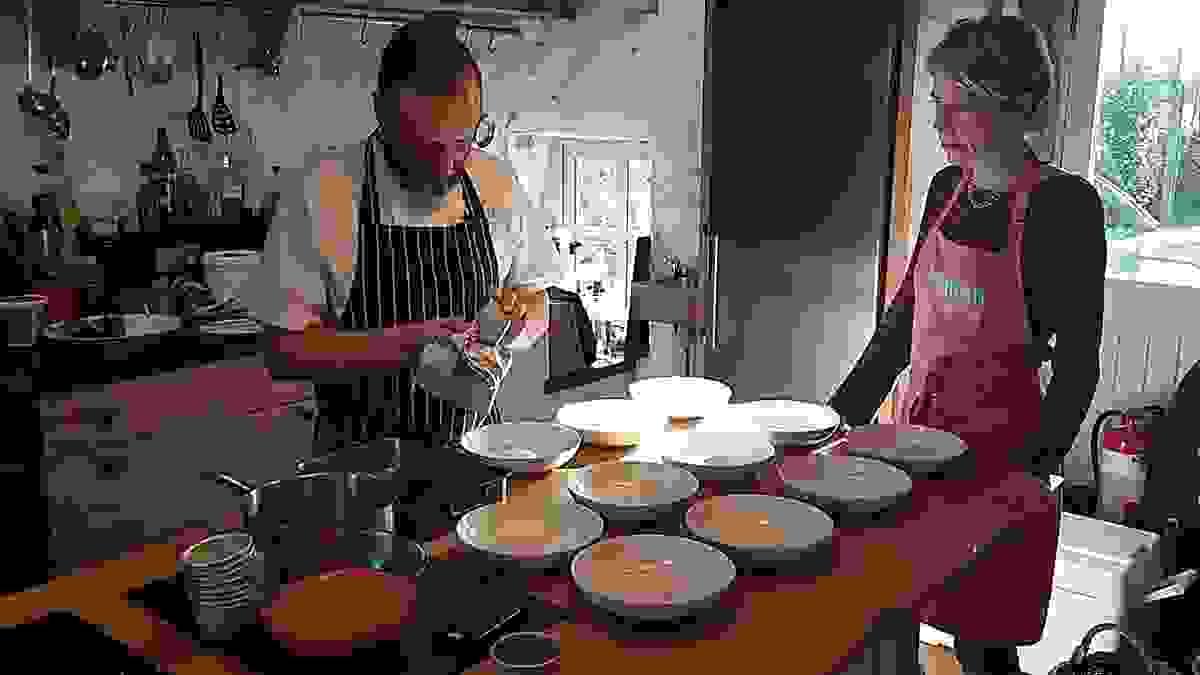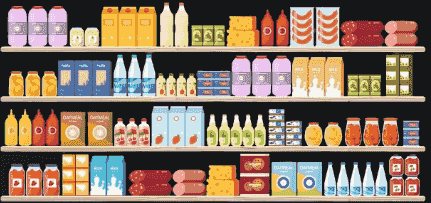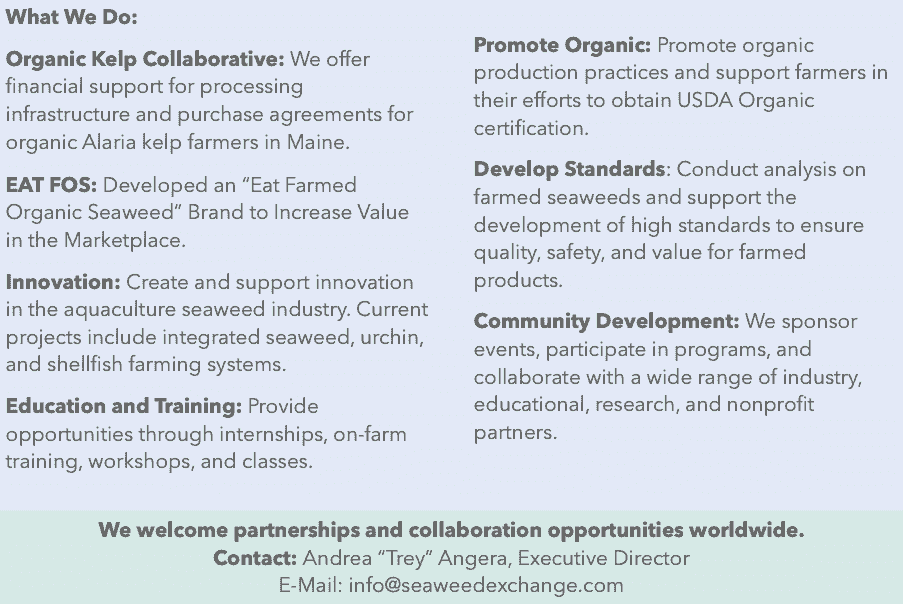


A Non-Profit Dedicated to Aquacultured Seaweed Education, Research & Advocacy
Organic, Sustainable, Restorative.
Upcoming Courses
Practical Programs Designed for Consumers, Farmers, Investors, and the Industry

Seaweed Cooking Course: Integrating Seaweed Into Your Diet: Theory and Practice.
Saturday May 16th 2026 9:30am - 4:30pm ET (In-Person Only).
A valuable program for those who wish to safely obtain the nutritional benefits of seaweed as well as for seaweed farmers and professionals looking to identify target species and products.
An exciting new course on integrating seaweed into your diet! A blend of theory and demonstration. We'll also discuss seaweed skin care.
There are thousands of edible seaweeds. We will introduce those most widely available in North America and how they can be prepared and utilized in your daily routine and cooking.
Topics will include:
Edible seaweed types, names, and uses, including how to read product labels.
How to utilize seaweeds while avoiding heavy metals and excess iodine through product selection and preparation.
How much seaweed is needed to achieve optimal nutritional benefits.
Simple and easy ways to cook with seaweed including food preperation and cooking demonstrations.
How to make easy and simple skin oils and lotions with seaweed.
The program focus is accessing the health benefits of utilizing seaweed in your daily routine. The course is explores non-intrusive methods and applications, i.e., how to integrate seaweed into your current diet and dishes, and avoiding "seaweed" or "fishy" flavors.
Many seaweeds (aka "sea vegetables") currently on the market not only come with health benefits, but real health risks. Before introducing seaweed into your diet you should obtain the necessary information to make healthy and safe choices. This course is designed to fill this function.
This course is also ideal for seaweed farmers who are looking for the most appropriate species to cultivate; as well as product developers looking to create healthy and safe seaweed based products.
The program is an In-Person program at our facility in Gouldsbooro Maine on Saturday May 16, 2026 from 9:30am to 4:30pm ET.
Program cost is $75 with the option of reduced rate private consulting sessions to address specific questions or interests.
All participants will receive a seaweed gift from Springtide Seaweed, LLC!

New Course! Achieving Success in Launching
CPG Seaweed Products.
Monday May 18th, 2026,
2:00 pm to 4:30 pm ET (Zoom Only).
Successfully bringing consumer packaged goods (CPG) products to market is never easy. Doing so with unfamiliar products like seaweed is even harder.
This course will discuss the major obstacles to launching CPG products and how to overcome them. There will be a focus on seaweed products, however the course will be beneficial to all those considering or already launching a CPG product.
We will explore founder traits that can make the difference between success and failure.
There will be a detailed exploration of markets, pricing, and consumer acceptance.
Course is Zoom only and costs $175. Additional one-on-one time is available at a discounted rate.

Join Our Community
We have moved our membership plans to Substack!
Substack allows an efficient way to share content. There are free subscriptions as well as paid. The paid subscriptions provide discounts on educational programs and access to member discounts such as discounts on seaweed seed and products from Springtide Seaweed. Paid subscriptions directly support our work.
- Contact Us
Don't be afraid to reach out. We would love to hear from you!
© 2021-2026 Maine Seaweed Exchange




